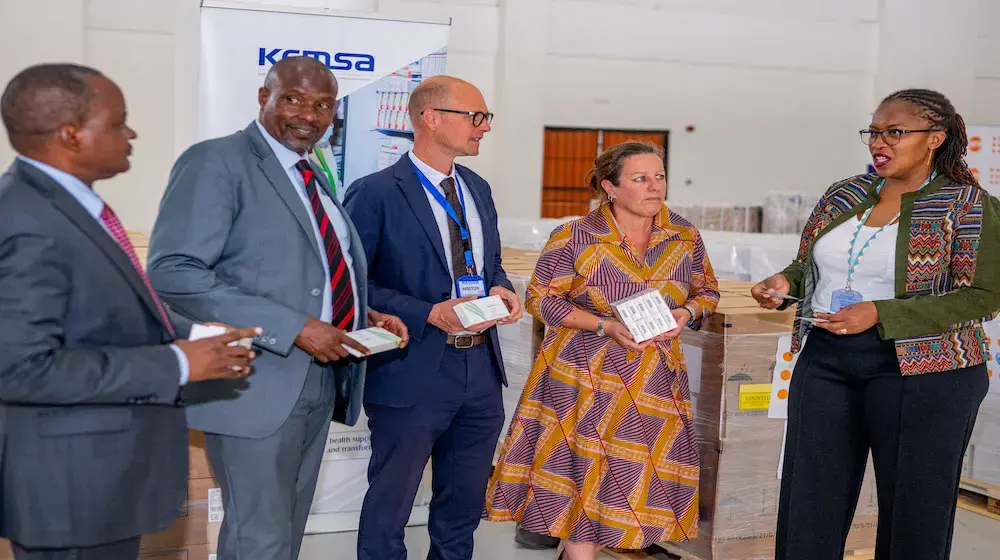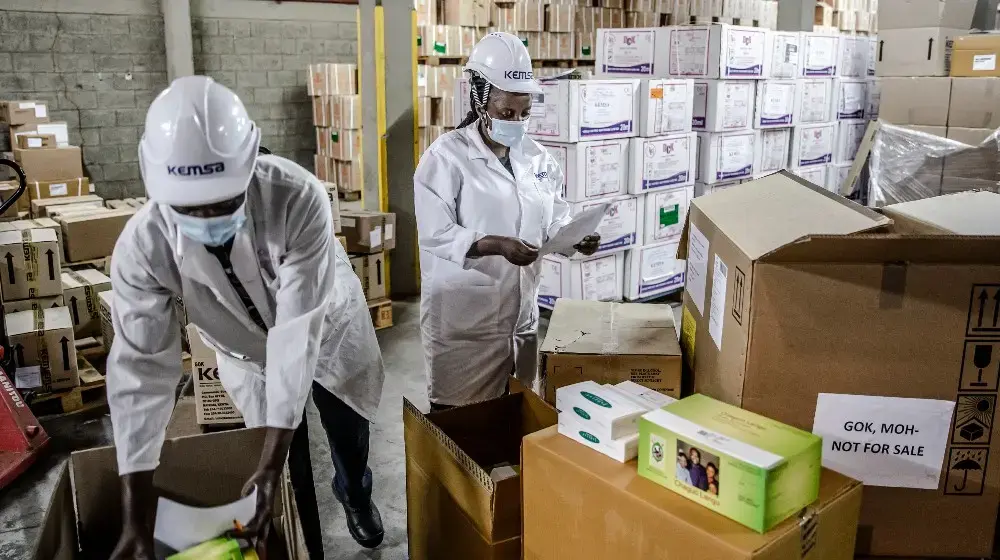Nairobi, 1 September 2022– UNFPA Kenya has received £500,000 (KES 69.8 Million) in funding from UKAid that will go towards strengthening reproductive health commodity security in the country. The contribution will support access to high-quality and safe contraceptives for women of reproductive age, through the procurement of assorted family planning commodities.
The commodities will be distributed across 300 public health facilities with the goal of eliminating the gap in access to family planning faced by women and girls, particularly those living in rural and hard-to-reach areas including informal urban settlements and humanitarian settings. The funds will also facilitate institutional capacity building to strengthen the coordination mechanism for reproductive health commodity security at both national and county levels, improving efficiency and accountability.
British High Commission’s Team Leader, Dr. Samora Otieno, emphasized the importance of having well-funded family planning programmes as a key strategy in poverty reduction and achievement of the sustainable development goals. “When a woman is able to plan whether and when to have children, she is better equipped to complete her education and improve her economic status, which in turn contributes to the nation’s socio-economic development,” said Dr. Otieno.
While Kenya has made great progress in improving the uptake of family planning, various challenges persist that hinder access, including a limited supply of different contraceptive methods. The 2018 Kenya health facility survey found that stock-outs of different contraceptive methods persist, with only 57% of facilities having all five tracer items which include condoms, injectable contraceptives, combined oral pills, progestin-only pills, and blood pressure apparatus.
The UNFPA Kenya Country Representative, Anders Thomsen thanked the UK government for the generous funding, noting that the support will contribute to averting over 26,000 unintended pregnancies, and 6,000 unsafe abortions. “Family planning is vital to safe motherhood and can contribute to less public sector spending on health by reducing costs related to unplanned births, unsafe abortions, as well as death and disability related to complications of pregnancy and childbirth,” said Mr. Thomsen. “UNFPA is committed to working with the government of Kenya to achieve zero unmet need for family planning by 2030 through the establishment of an efficient system for the delivery of commodities up to the last mile.”
Attaining sustainable financing for Family Planning calls for increased investments by the government and development partners at national and sub-national levels. Through the commodity security forum, the Foreign, Commonwealth & Development Office (FCDO) is working with stakeholders including UNFPA and the Ministry of Health to support the government in gradually increasing the national budget allocation for the procurement of family planning commodities up to 100% in 2026.




